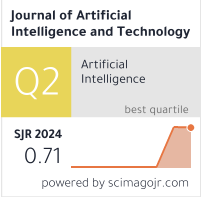Technical Report Writing Efficiency Using AI-Powered Tools: Opportunities, Challenges, and Future Directions
DOI:
https://doi.org/10.37965/jait.2025.0729Keywords:
accuracy, artificial intelligence, efficiency, ethical concerns, technical writingAbstract
The study explores the role of Artificial Intelligence (AI) in enhancing the efficiency and quality of technical report writing, focusing on commonly used tools such as grammar checkers, ChatGPT-based drafting assistants, and citation management software. Using a mixed-methods approach, comprising expert interviews and a survey of 83 technical writers, the research examines how AI technologies are currently integrated into professional writing practices and evaluates their impact across efficiency, accuracy, and ethical dimensions. The findings indicate that AI tools offer substantial time savings, especially in automating repetitive tasks such as grammar correction, referencing, and document structuring. They also improve linguistic clarity and consistency in terminology. However, experts caution that AI tools still struggle with domain-specific accuracy and contextual interpretation, limiting their effectiveness in specialized fields like engineering and business. Moreover, ethical concerns, including potential plagiarism, authorship ambiguity, and over-reliance among novice writers, emerge as critical challenges. Despite these limitations, the study finds that AI can play a valuable role as a collaborative partner in technical writing when paired with human oversight. It advocates for developing domain-adaptive AI systems and calls for more straightforward ethical guidelines to support responsible integration. While the research sample is modest and primarily technology-focused, the study offers meaningful contributions to the discourse on AI in technical communication. It provides practical recommendations for leveraging AI tools effectively while preserving the critical role of human expertise, judgment, and ethical responsibility in technical documentation.
Published
How to Cite
Issue
Section
License
Copyright (c) 2025 Author

This work is licensed under a Creative Commons Attribution 4.0 International License.





